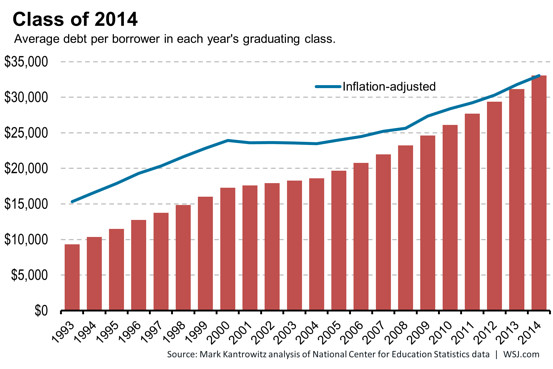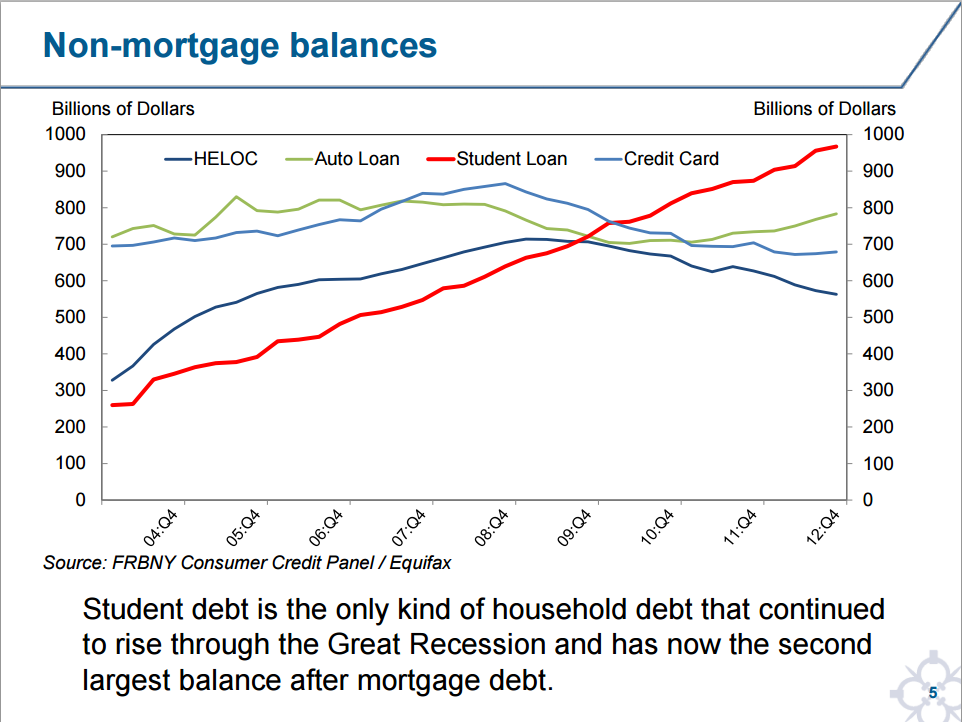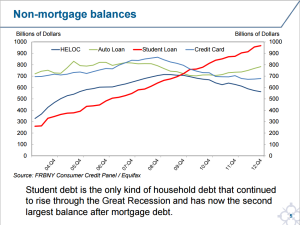Is Pursuing Christian Wealth Worth the Spiritual Risk?
 I read a lot of personal finance bloggers, many of them Christian. It seems to me that many of them ask “Can we?” in regard to Christian wealth, but rarely ask if we should. Dave Ramsey, for example, talks a lot about handling money God’s way. He says that God’s way will lead to having a lot of money that you can give away later after you are established. Very similar to the prosperity gospel I was a part of; the goal was always to get more money for the sake of God’s kingdom, but it would make us wealthy along the way.
I read a lot of personal finance bloggers, many of them Christian. It seems to me that many of them ask “Can we?” in regard to Christian wealth, but rarely ask if we should. Dave Ramsey, for example, talks a lot about handling money God’s way. He says that God’s way will lead to having a lot of money that you can give away later after you are established. Very similar to the prosperity gospel I was a part of; the goal was always to get more money for the sake of God’s kingdom, but it would make us wealthy along the way.
There is no specific text in scripture that says the accumulation of wealth is a sin. However, there are enough warnings given concerning money and the love of it that we should ask if we should be pursuing wealth, at the same rate and with the same intensity as the rest of the world, is really worth it. For example:
Matthew 19 – After telling the rich young ruler to sell all that he has he turns to his disciples and says “Truly, I say to you, only with difficulty will a rich person enter the kingdom of heaven. 24 Again I tell you, it is easier for a camel to go through the eye of a needle than for a rich person to enter the kingdom of God.”
The disciples were astonished because they saw wealth as a direct sign of God’s blessing. If that person couldn’t enter the kingdom then who could? This is because money clouds our vision and prevents us from seeing our need for God’s grace. (And no there is no evidence of a small door called the “eye of the needle” that camels had to crawl through)
1 Tim –[6] But godliness with contentment is great gain, [7] for we brought nothing into the world, and we cannot take anything out of the world. [8] But if we have food and clothing, with these we will be content. [9] But those who desire to be rich fall into temptation, into a snare, into many senseless and harmful desires that plunge people into ruin and destruction. [10] For the love of money is a root of all kinds of evils. It is through this craving that some have wandered away from the faith and pierced themselves with many pangs.
Paul calls to be content with food and clothing because of the inherent dangers in the pursuit of wealth. Of course, we don’t pursue money for it’s own sake. Of all the Christians pursuing wealth, not one of them would say it is for their own sake. Paul seems to be warning a Christian that no longer exists in our day. We only want money for the good it can do, but Paul didn’t seem to be to concerned about our good intentions. He seems to think the risk wasn’t worth the results. The very thing we pursue with such vigor can tempt and draw us to destruction. Is it worth the risk?
I know I am taking a hard stand and I would love to hear your comments below as I process this.
Image by jakerust
Dave Ramsey – My first impression
I have been writing on personal finance and helping people with their money for years, but I have avoided Dave Ramsey like a OSU fan avoids maize and gold. I didn’t want to be overtly influenced by what some people consider the definitive author of personal finance. I realize, of course, that since most of what is taught in the PF world is common sense it all seems derivative, but I still prefer to feel like I am not copying someone else’s work.
been writing on personal finance and helping people with their money for years, but I have avoided Dave Ramsey like a OSU fan avoids maize and gold. I didn’t want to be overtly influenced by what some people consider the definitive author of personal finance. I realize, of course, that since most of what is taught in the PF world is common sense it all seems derivative, but I still prefer to feel like I am not copying someone else’s work.
Dave Ramsey is an Evangelical Christian who makes his name by teaching people “God’s way to handle their money”. I have been asked to assist with facilitating Dave Ramsey’s Financial Peace University, his magnum opus, and so I held my breath and plunged in. It wasn’t as bad as I thought it might be on many levels. Dave is a very polished presenter with a delivery that reminds me of comedian Bill Engvall (they also have the same eyes) his use of humor was engaging and kept me from becoming completely bored, I can’t stand to be on the receiving end of a monologue.
Having said all of that, I am troubled that some of the things he says abuse the bible to prove his way is God’s way. He uses the bible to proof text his points, but has yet to address any passages that would contrast his “God wants you to have the American dream message.” For example, Jesus call in Luke 14:33 “So therefore, any one of you who does not renounce all that he has cannot be my disciple.” Or the fact that the Bible has very little good to say about money unless it is being given away. As a recovering member of the prosperity gospel movement this makes me very nervous.
We are only three weeks into the class so I hope I my mind will be changed as I move forward but I wanted to get my first impression out there before it is too late.
Have you ever taken the course? Tell me if it gets better in the comments below.
Photo courtesy of Jessica Adkins
Congratulations to Class of 2014, Most Indebted Ever
The Wall Street Journal says “As college graduates in the Class of 2014 prepare to shift their tassels and accept their diplomas, they leave school with one discouraging distinction: They’re the most indebted class ever.”
I have often wondered if my choice to go back to school was a good one based on my situation. I was 32 and had no degree to speak of, but I was already deep into a career that required a degree. I was very fortunate to get into IT work during the boom when all you needed was a warm body and some aptitude. (which thanks to my parents getting me a C64 when I was 8, I had in spades) Did I really need to go back to school? Probably not, I took on some debt to do it although because of the program I was able to complete my degree in from 0-BA in two years. In working with a lot of college grads who are now turning to a bleak job market I have to wonder how much longer we will swallow the bitter pill of college.
There are some careers are always going to need a degree, but it seems like apprentice programs and boot camps would serve many people better in the log run. If you are going to take out a small mortgage for a career that pays $30,000 a year it isn’t a good investment or good stewardship of your money. I hope things turn around before my girls are old enough to face this ever growing mountain of debt.
HT to: http://ift.tt/UVpGPS
Snagshout review
 Snagshout is a social deals website that creates a connection between shoppers and brand owners.
Snagshout is a social deals website that creates a connection between shoppers and brand owners.
Snagshout offers products at discount prices in exchange for reviews of the products. I had never tried to use this type of service before so I naturally wanted to give it a shot. The big bonus was most of the deals you can snag are through amazon so I felt safe in dealing with them. I snagged a pack of 6 micro USB connectors because we lose and break those things all the time. Normally they are 12.99, but with the supplied promo code they were 1.99 and with my Amazon Prime account the shipping was free and two days.
Snagshout made the whole process easy by including buttons directly to he product and the a button to send me to the review page once my purchase was complete. I wrote the review after I had time to test out the cables (which worked fine, it was a simple product) and it was approved by Amazon in moments. For some reason Snagshout had some trouble finding my review and after a three days I simply pasted the URL for my review into their handy field and it was approved by Snagshout a few hours later. The process was clean and easy.
My wife picked up an immersion blender for $10 and had no trouble with her review approval, so perhaps I did something wrong. Let me know if you have issues if you check it out.
The products Snagshout offers seem to rotate in and out, I am seeing items now I didn’t see before and some items I thought to come back and claim are out so it would be good to check regularly and see what they have available.
This post contains affiliate links.
Have Millennials Been Robbed of Their Birthright?

The National Center for Policy Analysis has an interesting article out about the effects of our big government on our newest citizens.
Burdened with an obligation to pay government debt they did not incur, young Americans – those born between the early 1980s and the beginning of the 21st century, or millennials – begin life at least partially robbed of their birthright.
Is this an example of Robin Hood in reverse where the wealthiest generation is taking money from the poorest to support their own lifestyle? Maybe. The bible tell us that a wise man lays up an inheritance for his grandchildren. Not a debt. We are continually forcing our children to pay for things they did not ask for and do not want just to support politically powerful interest groups. That isn’t the biblical model of stewardship.
HT to: http://ift.tt/1IJadZO
When Does Saving Turn into Hoarding?
Over at Christianpf.com they had a good discussion on this topic with some good practical ideas on what to look at. I have a question as a thought experiment. Should Christians have a self imposed (I believe any sort of forced cap would be immoral) income or networth cap? I read about a church that did this for their leadership about 15 years ago. It felt like an over reaction to the prosperity “gospel” of the day and I wasn’t sure how I felt about it. But now I wonder if there is some wisdom in it.
We talk a lot here about how personal finance is personal and much of it deals with a position of the heart, but while we can talk about shades of gray eventually grey becomes black and I have been thinking a lot about where grey becomes black in the case of savings v. hoarding.
The Bible clearly states that saving is a good thing (see Proverbs 21:20) and that hoarding is not (see Luke 12:20-21). But is there a clear distinction between the two? And how can we know if we have crossed the line? There must be a line, but is it completely subjective or not? Should we think nationally where we may be in the bottom 10% or globally where if you are American you are in the top 1% no matter how poor you are?
I would love to have a constructive conversation about this because I process by talking things through. Does the Bible speak to this? I think John did in Luke 3 when he tells the people give one of their coats away if they have 2 and their neighbor has none. My family has more coats than we can fit in our closet! But so do most of our “poorer” neighbors.
So, what would this look like? I have no idea as I said it is a thought experiment and I would love to hear from anyone even if you think I am crazy. Drop a line in the comments below.
Student Loan Debt Continues to Rise
A new report by the New York Fed shows that while many of us were paying off debt during the great recession. Student loan debt was the only category to continue to rise.
We have a group of young people who are not only going into debt up to their eyeballs and demanding someone else pay for it. They are also being forced to pay money to the richest age group in America through taxation.
Something is going to give here and I am not quite sure what it is, but I don’t think it is going to be pretty.
Source: http://www.newyorkfed.org/newsevents/mediaadvisory/2013/Lee022813.pdf
Fund retirement or pay off mortgage.
 I get this question a lot in my classes. It is better to pay off a mortgage or fund retirement? This is one of those decisions that depends on what one means by better, which sounds like a cop out but really it isn’t.
I get this question a lot in my classes. It is better to pay off a mortgage or fund retirement? This is one of those decisions that depends on what one means by better, which sounds like a cop out but really it isn’t.
The debate boils down to this…
If your interest mortgage interest rate is 4% and you pay extra on your mortgage you are making 4%. If you can make more than 4% investing you will make more money investing.
But that does over simplify things a bit. And doesn’t answer the question “is it best for you”?”
Mathematically, you can make more money by not paying off a mortgage if your interest rate is low enough and you have a good investment strategy, however that may not be what you mean by this decision. Some people would be served better by the freedom a free and clear house can bring. Maybe you want to start a business or change careers or go into the mission field. Having a free and clear house could make that much easier.
Folks like Dave Ramsey are big proponents of paying off your mortgage, it is one if his big steps in accomplishing financial peace. And I think I would argue that it is probably best for most people, simply because most people aren’t good at managing their money.
Thoughts from around the web…
http://twocents.lifehacker.com/money-advice-the-experts-don-t-agree-on-paying-off-you-1607494999
Pay Off Mortgage Early vs. Save More For Retirement? Digging Deep Into The Details
Image by stevensnodgrass
Money dangers in your 30s
 I have posted previously about how to screw up your finances in your 20s. And now that I am half way through my 30’s I can see a few money dangers that I would like to warn you about. My wife and I started to notice some things in how we looked at money and maybe this isn’t about how old you are, but how long you have been taken personal finance seriously. I feel like we are hitting a point of frugal fatigue. I have been frugal for a long time now, most of my adult life actually. And there are days I am getting quite tired of it.
I have posted previously about how to screw up your finances in your 20s. And now that I am half way through my 30’s I can see a few money dangers that I would like to warn you about. My wife and I started to notice some things in how we looked at money and maybe this isn’t about how old you are, but how long you have been taken personal finance seriously. I feel like we are hitting a point of frugal fatigue. I have been frugal for a long time now, most of my adult life actually. And there are days I am getting quite tired of it.
Here are some dangers to look out for…
- Spoiling your child – We were determined not to do this, in fact for the first 6-8 years we really didn’t buy much for our girls. We were very blessed by friends who gave us a lot of toys and grand parents that did most of the new buying. Recently, however we are finding that our girls have A LOT of stuff. We even started storing bins of different types of toys in the garage and rotating them out so they would play with different things. Kids don’t need as much as they want. It is easy to try to give them more and more stuff, but they want your time and attention more.
- Spoiling yourself – This one is actually harder money dangers for me than spoiling the kids, at least right now. We are still struggling with the right decision for our house. It is nice to look at all the big new homes that we could “afford”, but are obviously able to live in something smaller. Our (my) pride is pushing me to buy a bigger house than we need. It is easy as you are coming into the prime of your career to want to buy more and more but this is the time to stay the course and live simply to help those in a world of need.
- Ignoring Insurance needs – Look, no one likes to talk about this, but if you have a growing family you need to look at insurance. Life insurance is meant to take care of your family if something happens to you. Do you really want your spouse struggling to keep your home and your family together? You should really chat with an insurance professional and decide what is best for your family.
- Ignoring a will, POA and survivor checklist – along those same lines, if you have a family and don’t have a will, “shame on you”. You don’t want your spouse struggling over decisions surrounding your death, or arguing with your family over who gets what or who has power of attorney. Anyone can make a will and power of attorney through Legalzoom or prepaid legal. Also if one of you takes care of most of the money matters, you need to let your spouse know who to contact and where the money is located along with passwords for those accounts, and all the other information they may need. Check out how you can use lastpass to make that easier..
- Still having consumer debt – Come on now, it is high time you paid off those mistakes from your 20s. Debt can keep you from pursuing your long term goals, and can cause rifts in your marriage that you don’t want to have to deal with.
- Not funding retirement – It is closer than you think. Retirement needs to be planned for, some would say it is even more important than a childs education planning because there are scholarships for school, but not for retirement. Time and compound interest is still on your side but you need to start sooner rather than later.
What are some mistakes you think make your 30’s harder? Let us know below.
Other articles around this same topic…
image by flickrohit










